The views expressed in our content reflect individual perspectives and do not represent the authoritative views of the Baha'i Faith.
We commit errors all the time—it’s part of being human. Are those errors sins, or simply mistakes?
Take my favorite example, driving a car. Pulling out into a small opening in oncoming traffic instead of waiting for a larger one might be considered rude, but may have just been a mistake in judgment or depth perception. Speeding—although most drivers exceed the speed limit—is considered an error worthy of a traffic ticket from the authorities.
So is speeding a sin against the law, a deliberate breaking of it? A little definition work here might help.

An error implies a mistake. Whether conscious or unconscious, inconsequential or severe, it’s in the eye of the beholder. We all make mistakes—that’s normal and natural. The Baha’i teachings say “mortal man is prone to err:”
… He [God] is closer to him than his own self. He will, indeed, so remain forever, for, whereas the one true God knoweth all things, perceiveth all things, and comprehendeth all things, mortal man is prone to err, and is ignorant of the mysteries that lie enfolded within him .… – Baha’u’llah, Gleanings from the Writings of Baha’u’llah, p. 186.
Webster’s Dictionary defines sin as “the willful breaking of any moral or religious law.” When we err it may be out of ignorance or inattention. When we sin we usually know what law what we’re breaking, but we break it anyway.
Interestingly, though, the word sin comes from the original Hebrew word hata, an archery term that literally means to miss the bullseye—but still hit the target.
We’ve had hang-ups about sin since the earliest times. The Seven Deadly Sins, codified in the 4th century, are: greed, sloth, pride, lust, envy, gluttony, and wrath. Comparatively, behavioral psychologists have catalogued a list of over six hundred human virtues.
Simply put, we acquire virtues by doing the right thing, and commit “sins” by doing the wrong thing—or sometimes by refusing to do the right thing. If you’re attempting to become a better person, you strive to acquire virtues and eliminate sins.
But unlike some of the religions of the past, the Baha’i teachings don’t emphasize or belabor the concept of sin. Instead, they define it very differently than you may have heard it defined in the past: as the “attachment of spirit and self to the material world …” – Abdu’l-Baha, Some Answered Questions, newly revised edition, p. 140.
All sin, the Baha’i writings say, comes from our lower, animal nature; the ego; the insistent self:
God has created all in His image and likeness. Shall we manifest hatred for His creatures and servants? This would be contrary to the will of God and according to the will of Satan, by which we mean the natural inclinations of the lower nature. This lower nature in man is symbolized as Satan—the evil ego within us, not an evil personality outside. – Abdu’l-Baha, The Promulgation of Universal Peace, p. 286.
Baha’is view sin as a personal matter, not a public one. For Baha’is there is no confession of sins, only a humble request for forgiveness made entirely, prayerfully and privately between each person and God. The Baha’i teachings advise us to conceal the sins of others, and to lovingly help those who miss the bullseye in life:
If ye become aware of a sin committed by another, conceal it, that God may conceal your own sin. – Baha’u’llah, Epistle to the Son of the Wolf, p. 55.
When we find a person fallen into the depths of misery or sin we must be kind to him, take him by the hand, help him to regain his footing, his strength; we must guide him with love and tenderness, treat him as a friend not as an enemy.
We have no right to look upon any of our fellow-mortals as evil. – Abdu’l-Baha, Paris Talks, p. 150.
We must look upon our enemies with a sin-covering eye and act with justice when confronted with any injustice whatsoever, forgive all, consider the whole of humanity as our own family, the whole earth as our own country, be sympathetic with all suffering, nurse the sick, offer a shelter to the exiled, help the poor and those in need, dress all wounds and share the happiness of each one. – Abdu’l-Baha, Divine Philosophy, p. 41.
We humans, the Baha’i teachings say, have a natural inclination toward the good. We’re spiritual beings who temporarily live in a material world, and all of us struggle to fulfill our essentially spiritual nature and overcome our animal traits. Baha’u’llah compares our tender hearts to mirrors that reflect what we point them towards:
Wert thou to cleanse the mirror of thy heart from the dust of malice, thou wouldst apprehend the meaning of the symbolic terms revealed by the all-embracing Word of God made manifest in every Dispensation, and wouldst discover the mysteries of divine knowledge. – Baha’u’llah, The Book of Certitude, p. 68.
Baha’is consider humans to be naturally good, fundamentally spiritual beings. Yes, we can all sin, by turning the mirrors of our hearts away from the sun—but because the sun is the source of all light and life, its rays can warm even the coldest heart.
You May Also Like
Comments



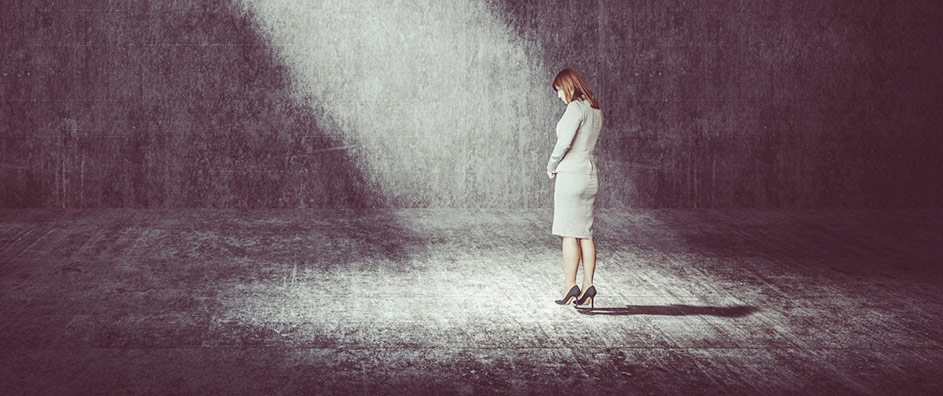








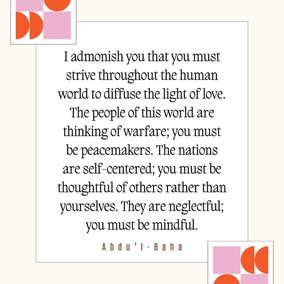
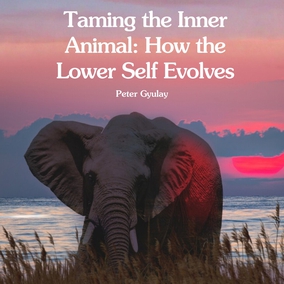
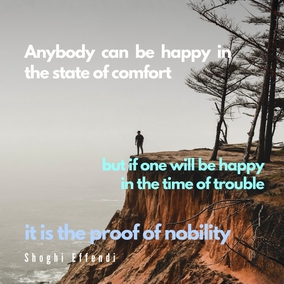
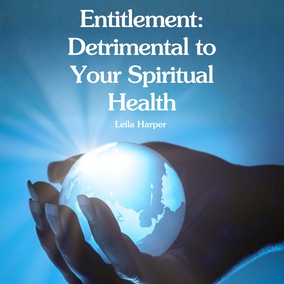

This lovely Faith has such depth of empathy and encouragement for the human condition ... truly 'good news' for the current age.